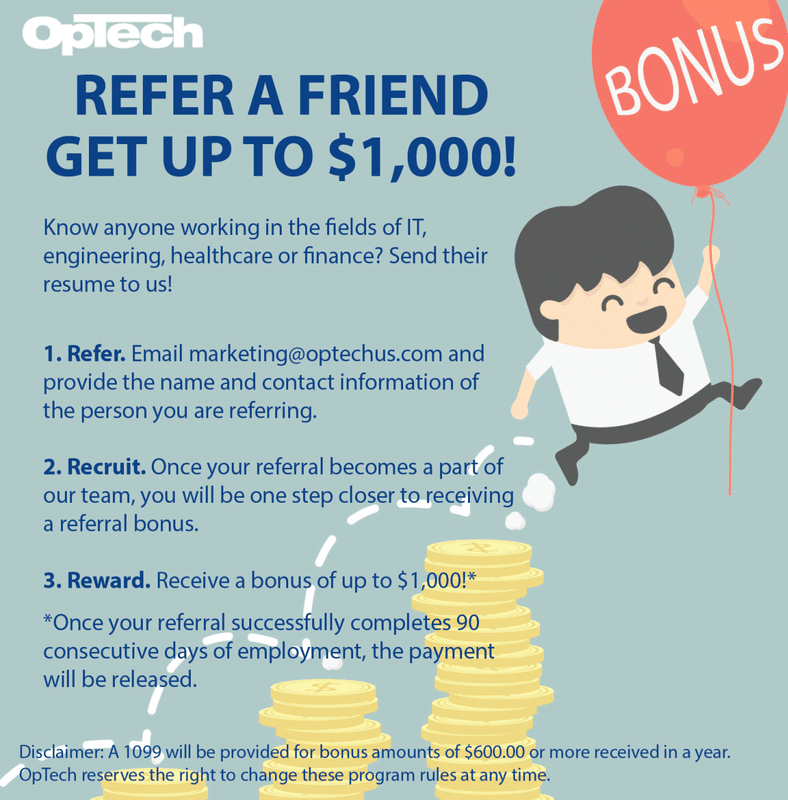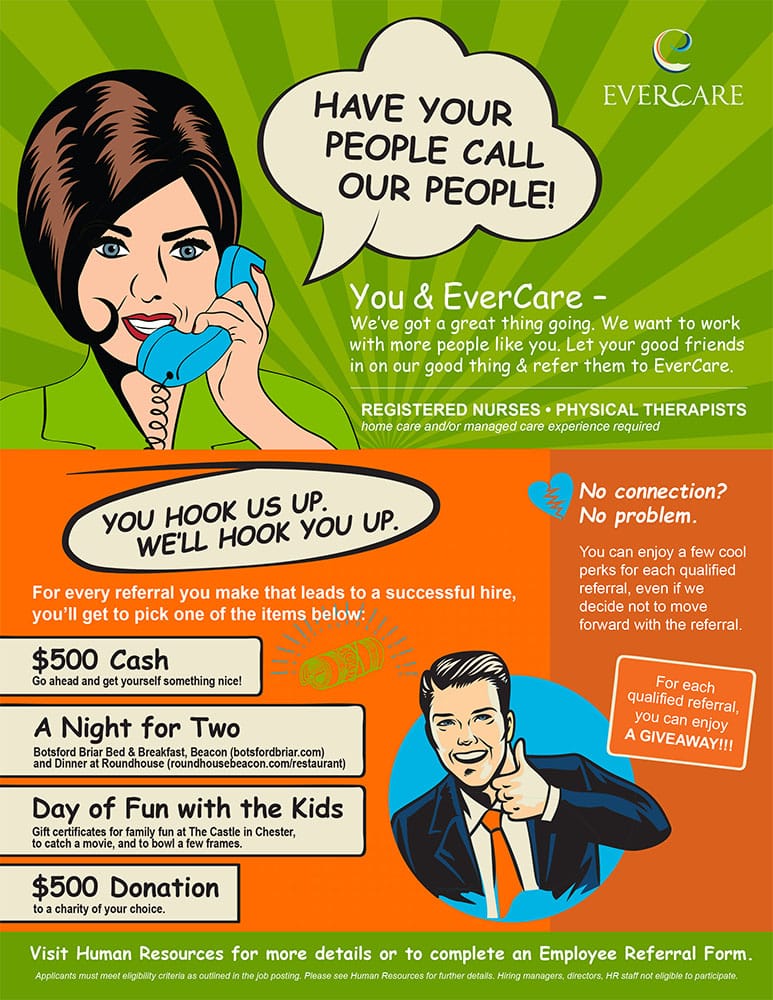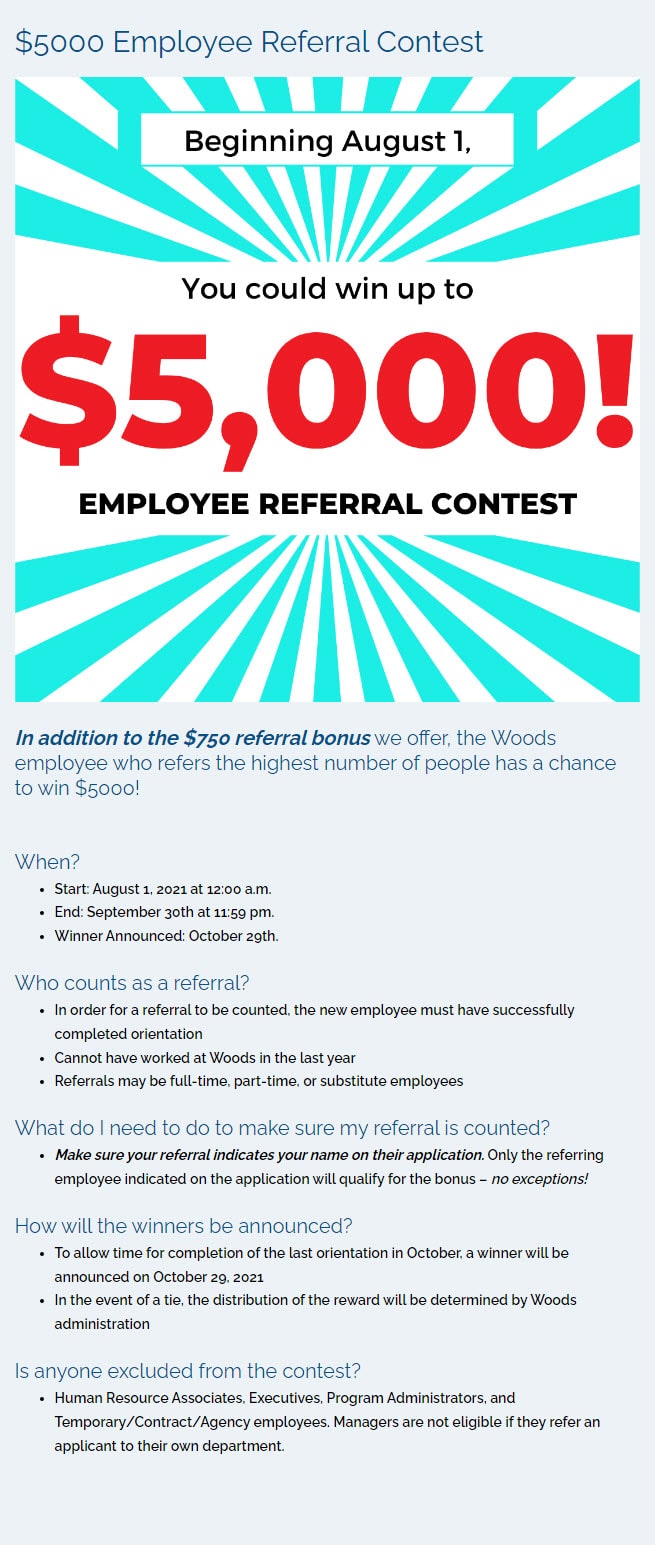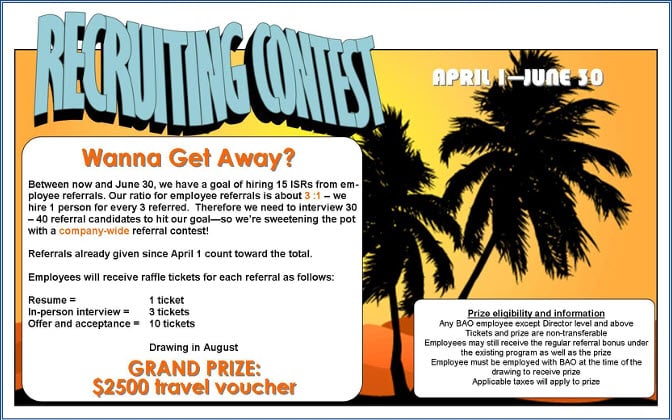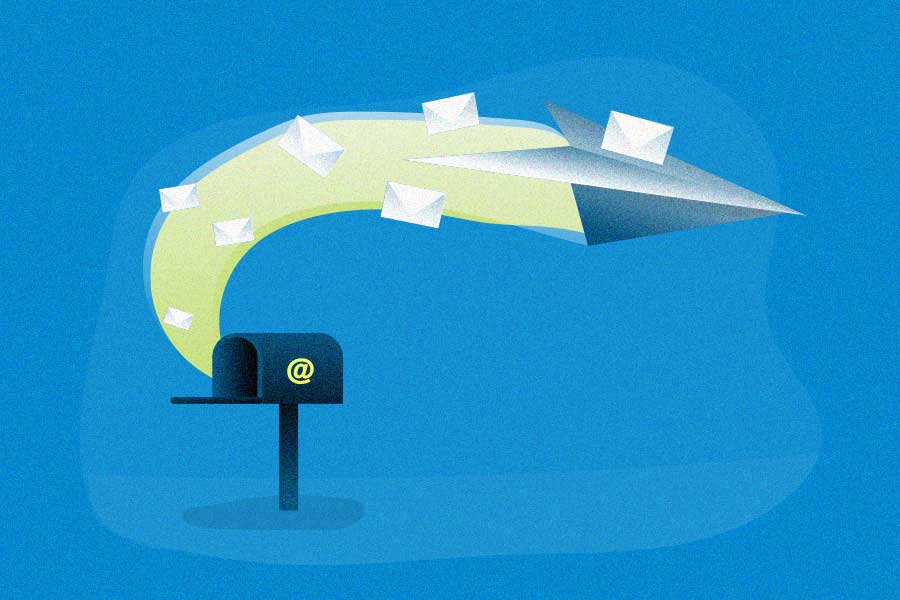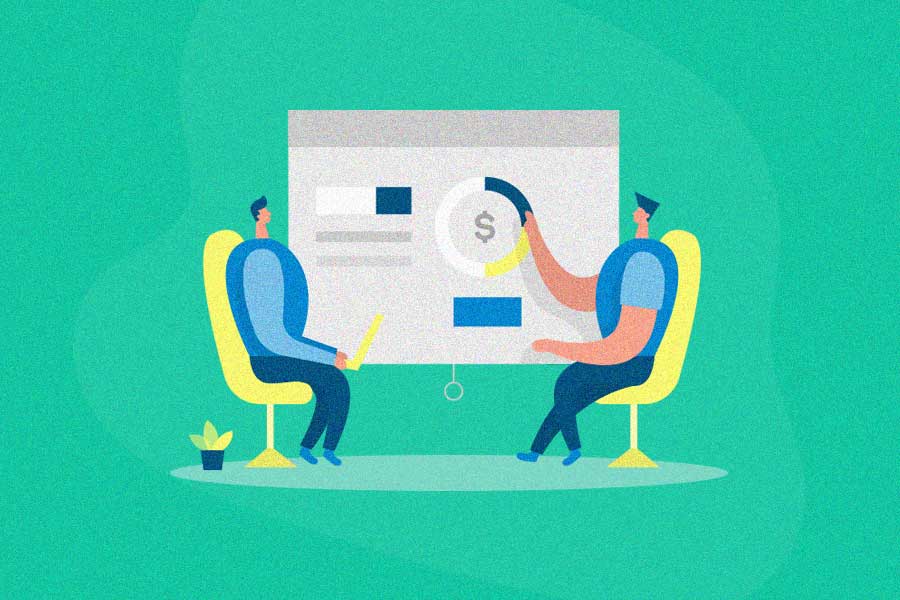For many years, the belief that employees will recommend their contacts without any incentive has held fast. However, that notion is steadily fading away.
Most employees today are sold on the value of referral programs, and employers are gradually realizing that giving only a thank you message in return for a referral simply doesn’t cut it. Instead, there must be something more on offer before employees will take the time to make a referral.
Employee referral bonuses are now the preferred option for showing appreciation. It’s hard to say no to a referral program if employees are promised an attractive perk at the end of it all.
In this article, we will cover:
- What an employee referral bonus is
- Benefits of offering a referral bonus
- When to give out referral bonuses
- Types of referral bonuses
- Special referral bonus structures
- How to track referrals and award links
What is an employee referral bonus?
An employee referral bonus is a type of compensation awarded to employees who successfully help refer your business to others. Most commonly, it’s paid as part of a formal referral incentive program. It could be awarded for referrals of qualified candidates or new customers.
Types of employee referral bonuses
Referral bonuses generally come in two types:
- Employee-to-employee referral bonus: This type of referral bonus is awarded when current employees refer qualified candidates for open positions.
- Usually, it’s awarded when the newly referred employee is hired.
- You could also pay smaller bonuses at other points in the hiring process: when a referred candidate submits an application, and if they get approved for an interview. If you do this, the ultimate “hired” bonus should be bigger.
- Employee-to-customer referral bonus: Use this type of bonus to acknowledge and appreciate employees who’ve shared your products or services with people who might be interested.
- It’s awarded when the newly referred customer makes their first purchase.
- It recognizes employees for being an ambassador of your brand, and helps perpetuate employee advocacy.
Why give out employee referral bonuses?
Are referral bonuses really worth it? The answer is a resounding yes. Offering a bonus as part of your employee referral program can elevate your brand in a huge way. There are several outstanding benefits of giving out any employee referral bonus, whether it’s for recruiting new employees or bringing in new customers:
- Potential applicants and customers trust peers who recommend a company. As many as 90% trust referrals much more than they trust conventional forms of marketing, such as ads and messages from your business. This fact alone can serve as a good argument for giving out referral bonuses.
- Offering referral bonuses will open the floodgates of repeat referrals. Up to 92% of employees are more likely to repeat the referral process if they receive a token of appreciation for their efforts. This means you’ll spend less time searching for best-fit applicants or customers, and instead focus on the things that pull the most weight for your bottom line.
- Bonuses show that you value your employees’ input in growing your company. And there’s nothing employees love more than being commended when and where it matters. In fact, consistent recognition improves employee engagement by up to eight times. That means employee referrals help build up a strong company culture,
Ready to expand your company and looking for more employees? You’ll reap these additional benefits if you use employee-to-employee referral bonuses in your recruitment strategy:
- Employee referrals raise your revenue ceiling. Referrals are a reliable source of top talent, as referred employees are 25% more profitable. That includes the cost-per-hire of employee referrals, which is $1,000 less on average than other hiring sources.
- Employee referral bonuses are much cheaper compared to what you’d pay for listings on job boards. A single job post can cost as much as $499, compared to just $250 or less for an employee referral bonus.
- Referred hires have greater job satisfaction and stay longer at companies; giving out bonuses encourages your employees to send more of those referrals. Retention rates of referred employees currently stand at 46%, compared to 33% from career sites. It goes without saying that increased employee retention is a huge cost saving for any company.
And if you’re looking to add new people to your customer base, employee brand ambassadors will paint your products and services in a positive light, in a language that prospective customers understand. But they can only do that if you’re acknowledging their efforts through timely and consistent bonuses.
- Using bonuses to fast-track referrals will create a customer pool with a higher lifetime value (LTV). Referred customers are more likely to stay loyal to your company, and their lifetime value is 16% higher than that of non-referred customers.
- Rewarding employees for referring customers is cheaper than ads. Plus, you only pay the bonus when you see results (when the employee brings in new business). Overall, it’s more cost-effective to have employees bring in new customers compared to other strategies.
- You are likely to earn more revenue with referred customers. On average, referred customers spend 25% more than other customers.
Deciding on your employee referral bonus
When you hear the word “bonus,” it’s easy to think of cold, hard cash. That’s the most traditional form of a bonus, after all.
However, an employee referral bonus doesn’t always have to be monetary. At its roots, a bonus is something given or paid over and above a traditional salary. Maybe that’s an extra perk such as schedule flexibility or additional vacation days. Or perhaps it’s a tangible gift that employees would appreciate, or an experience they’d enjoy.
In this section, we’ll look at scenarios when it’s ideal to award a referral bonus, the different types of bonuses you could offer, when it makes sense to use special bonus structures, and how to track referrals and award bonuses.
When should you give out employee referral bonuses?
First, decide when an employee can earn bonus compensation: at what part of the referral process will you pay it out?
If you’re running an employee-to-employee referral program, you can opt to remit a bonus the moment you hire a referred candidate. Or, you can wait a little longer and dispense the bonus amount after a referred hire stays with your business for at least a month.
For many hiring managers, the latter payout makes more sense, since it allows for more flexibility and hardly takes a toll on the budget. Besides, you’ll have time to gauge whether or not the referred hire is worth their weight in gold. In turn, you’ll be well-placed to fine-tune your talent acquisition referral program going forward.
If budget allows, you can even pay out the referral bonuses when the qualified candidates submit job applications or a bit later during the interview process. It’s a surefire way to augment your referral program, because, let’s be honest, no referrer would say no getting their bonus earlier on in the onboarding process.
Be careful with this approach, though, as it can put you at odds with employees if not properly executed. They may become disgruntled when they don’t receive their bonuses in good time. It’s better to stick to paying out bonuses after the referred candidates are hired rather than pursuing this approach and failing halfway.
It’s also important to clarify the types of referrals that make someone eligible for a bonus. Will you only pay the bonus for successful referrals of full-time employees, or are referrals of part-time employees eligible for rewards as well? And must the referred candidate not have applied to your company at all, or not applied within a year, for someone to refer them?
For employee-to-customer referral programs, it’s best practice to give out referral bonuses when your employees’ friends or acquaintances become new customers. You might even choose to reward the referred customer and the referring employee once the referred customer makes their first purchase.
In some instances, it might be viable to reward employees for referred hires and not referred customers, or vice versa. It all depends on your budget, long term goals, and motivations. Or, you could remit bonuses for both new hires and new customers, with different rewards for each. The goal is to lay down a solid employee referral bonus program that withstands the test of time and contributes significantly to your bottom line.
Who can earn the employee referral bonus?
Next, decide on eligibility: who can receive the bonus when they make a successful referral?
In employee-to-employee referral programs, HR professionals and top executives aren’t usually eligible for bonus payments. And hiring managers shouldn’t be able to refer candidates to their own department to receive a bonus, but they could be eligible to refer someone to another department where you’re seeking a quality candidate.
Some employee-to-employee referral programs only let full-time employees participate. But others allow part-time employees to earn referral bonuses for successfully referring great candidates to open roles.
Employee-to-customer referral bonuses should be available to all of your employees, to maximize the impact of employee-ambassadors.
What type of referral bonuses should you offer?
Be considerate when giving out employee referral bonuses – choose rewards that employees actually want to earn, and don’t give out peanuts just because you can. But don’t hand out blank checks, either. Employee referral bonuses must also be sustainable to pay out, based on the value of each referral to your business.
Instead of settling on one employee referral bonus, you might let employees choose from a menu of options, each with a similar value. It might also be a good idea to ask employees what types of bonuses they’re interested in, to ensure that you’ve made a motivating choice.
Below are some types of referral bonuses you can give. Go through each one of them to see which options will work best for your team members.
1. Cash
It goes without saying that the majority of referral bonuses are money-based. Cash is a great way to give employees a pat on the back for their efforts, since they can use it towards whatever they want. Pay the referral bonus amount together with the employee’s paycheck, or remit the bonus immediately as an added incentive to refer.
If you’re awarding a cash referral bonus, you’ll need to withhold the appropriate amount of taxes from the bonus (just like with all bonuses).
2. Gift cards
Gift cards allow your employees to really treat themselves. Think about it—when you get a cash bonus, you’re probably more inclined to use it towards something meaningful and worthwhile, like paying back a loan or sticking it into your savings account. While this is definitely beneficial, giving employees the chance to treat themselves is also important. Consider awarding cards to well-recognized brands, like Amazon, Walmart, local restaurants, or any other brand you know your employees love.
3. Tickets
Event ticket coupons will help your employees get out of the house for the night. It’s even better if you can get tickets to major events like sports games, professional musicals, and concerts. No one would want to miss those for the world.
4. Development credit
This situation happens all the time: an employee stumbles upon a conference she would love to go to. The event is relevant, highly rated, and rife with networking opportunities. Then she notices the registration fees, and they seem high. She’s not even sure if the number is reasonable, and she doubts anyone would approve of her attending. Eventually, she moves on and forgets all about the conference.
Employee referral bonuses provide a way to turn this scenario around. By establishing and channeling credit towards conferences and other development opportunities, you can reward employees who further your company and have the ambition to learn – and strengthen your business twice in the process.
5. Paid trip experiences
You can also reward your employees with something they already love: fully-paid trips. Of course, these should be saved for the most impactful referrals, since they’re expensive to pay out. .
When an employee brings home a big referral, reward them with a paid vacation to a destination of their choice. Make the experience even better for them by allowing one or two friends or family members to tag along. Arrange everything for them down to the last detail, and you can rest assured that you’ll have made a lasting impression.
For a smaller reward, you could give employees flight or accommodation credits, without paying for the whole trip.
6. Extra paid time off
In the age of unpaid leave, offering a few paid off-days to deserving employees is an outstanding gesture to reward referrals. If that doesn’t work for you, let them take a few hours off early on a Friday.
7. Health and wellness gifts
Whether it’s yoga, CrossFit, spin class, or a free month at the gym, many people appreciate the gift of fitness classes and memberships.
You could also give the reward of relaxation, in the form of a spa day. They need it after working their socks off as employee brand ambassadors
8. Classes to learn something new
Perhaps an employee has a new skill they’ve always wanted to learn, or an experience they’ve always dreamed of having. Or, they might want to hone existing skills further. If you know their interests, this is a great employee referral bonus.
Examples of this type of referral bonus include cooking classes, painting sessions, or wine tastings.
9. Donations in the employee’s honor
This is a big incentive for your most charitable employees. Help them get to the next level of philanthropy by letting them donate to an organization they love. You might present a menu of charities they can choose from, or let them select the charity on their own.
10. Tangible incentives
Reward deserving employees with something valuable that they can touch and feel. This includes (but is not limited to) tablets, watches, phones, gift baskets, or high-quality backpacks.
What’s an even better reward than tangible gifts? Tangible gifts personalized in a way employees want.
Will you use special referral bonus structures?
Many businesses take the simple route with employee referral bonuses: one referral = one bonus of a permanently fixed value. But in some situations, it can be beneficial to employ unique referral bonus structures. These will motivate employees to make repeat referrals. Here are some examples:
1. Tiered referral bonus
Rather than giving an employee the full referral bonus after their referral is hired, it might be a good idea to break down the bonus and distribute the money in increments at succeeding stages in the recruitment process, or after specific milestones are met.
For instance, you can give a small referral bonus (say, a $10 gift card) when a referral applies for the job opening, a slightly bigger bonus (small cash or larger gift card, as a “finder’s” fee) if a referral is called in for an interview, and a big reward (say, a paid vacation) when a referral gets hired.
You might also consider designating bigger referral bonuses for harder to fill positions. If, for instance, your business is in the healthcare sector, it makes sense to award a heftier referral bonus for bringing in a doctor compared to a medical assistant.
For employee-to-customer referral bonuses, you can choose to vary the referral value depending on the number of customers brought in. For instance, you can give a $100 cash bonus for every five referred customers, $200 for ten customers, $300 for twenty customers, and so on. Or, you could give out different tangible rewards that increase in value as employees bring in more customers.
2. Gamified referral bonus
How could you gamify your referral bonus program? The possibilities are nearly endless, but leaderboards and progress bars are by far the most viable options.
You could use a referral progress bar to show employees how many referrals they made, and how many more they need to unlock a bonus. Set up the progress bar in such a way that bonuses get bigger with each level.
Leaderboards are also a worthy consideration. Display a leaderboard that tracks how many referrals each employee has made in a given month, quarter, or year. At the end of the set period, pay out an extra bonus to the person on top of the leaderboard. You could even give everyone who reaches a certain position on the leaderboard, such as the top 10 or top 20, a smaller prize, like a $20 gift card.
3. Diversity-focused referral bonus
A carefully tailored employee-to-employee referral bonus provides human resources with the perfect opportunity to bring in hires of color, hires with disabilities, women hires, and employees from other diverse backgrounds. For instance, you could offer a $250 cash bonus for every referral hired from an underrepresented group, on top of the bonus paid for bringing in any employee.
Intel used an approach like this, where they doubled their referral bonus if someone successfully referred a woman, person of color, or veteran as a new hire. This increased the amount of employees hired from these groups by 44%.
Bringing in employees with different perspectives will make your company stronger and increase performance, and an employee referral bonus will help you achieve this goal.
4. Referral contests
In addition to the standard rewards you give out, you could set up a contest to reward one lucky employee. In this kind of set up, every referral earns an entry into the draw for a chance to win the bigger-ticket prize.
The best strategy here is to use rewards that are in high demand, and that are truly worth competing for (think an iPad or vacation). It’s also a good idea to offer smaller prizes for those who make successful referrals, but who don’t win the ultimate prize. This will help drive even more referrals, as contestants feel they have even more chances to win. Secondary prizes don’t have to be huge; a simple gift card might just do the trick.
5. A public “thank you”
Sometimes a simple “thank you” can do wonders, especially in a public forum – like an all-company meeting or an email blast. You can even dedicate a portion of your website to recognizing and thanking your top referrers. It’s best to give tangible rewards in addition to this recognition, though.
How will you track referrals and award the bonuses?
So far, so good. You’ve mastered the art of building an employee referral bonus structure, but we aren’t done just yet. How will you track referrals to ensure you’re rewarding bonuses accurately and in a timely manner? The answer: employee referral software.
Referral software is key to a successful employee referral program, as it lets you track exactly where every referral came from, and immediately rewards your employees for successful referrals.
This software will make it easy to create trackable referral links. Every employee will have a unique link assigned to them. And at the click of a button, an employee can share their link with potential customers or potential hires. The link will then direct the leads to a landing page where they can apply or purchase. Once the link registers that a referral is successful, it instantly credits the referral to the responsible employee. The best part? Software pays out the referral bonus on time and with zero hiccups.
Referral Rock referral software works well with all types of employee referral bonus programs. Whether you want to reward employees for referring potential hires or potential customers, we can help you run a program that perfectly fits your needs. Plus, with our expert services, a dedicated onboarding specialist is there to assist you at every step of the way.
What else to keep in mind when awarding referral bonuses?
Once you’ve decided on your employee referral bonus and launched your program, it’s time to let your employees know that the bonus is available. After all, employee referral bonuses won’t be effective if your employees don’t know they’re available. Hold an all-hands meeting to promote the bonus, explain eligibility, and review how to submit referrals with your software. You could even use a lunch or happy hour to announce the program instead.
Also, be sure to email employees all the details of your bonus program, and post about the bonuses in Slack (or whichever tool you use for employee communication).
And don’t just promote your referral bonuses once and assume that’s enough! Use your referral software to automate emails and other promotions that keep employees engaged with your program and ready to keep referring for bonuses. This is especially crucial to update employees: if you’ve changed the value of the referral bonus, or increased the bonus value for a harder-to-fill position, let employees know immediately.
Wrapping up
You’re now equipped to launch a thoughtful, well-rounded employee referral bonus program. Just remember to be clear about what’s involved, and keep close tabs on the program to see if it’s making an impact. Then watch as the referrals roll in and your business grows, thanks to your motivated employees.
To improve your program as you go, be sure to leverage the data you collect with referral software.

